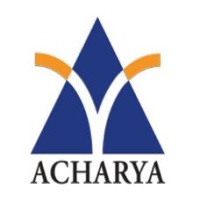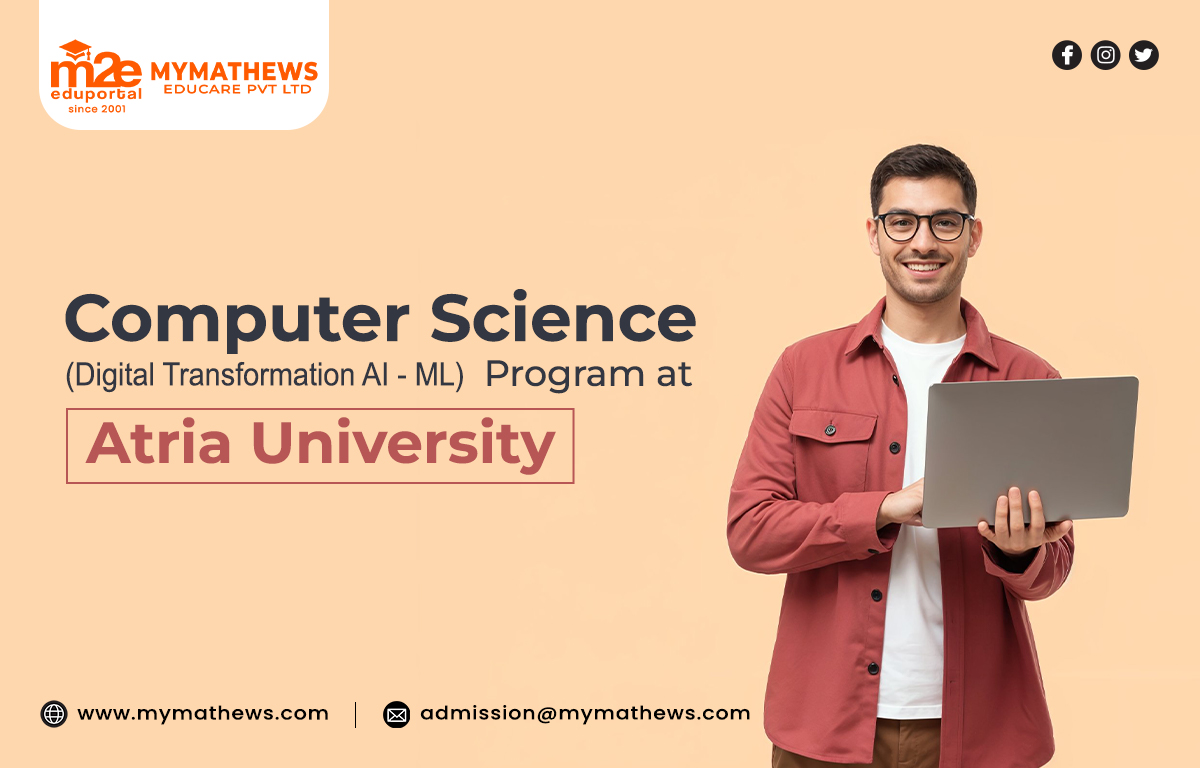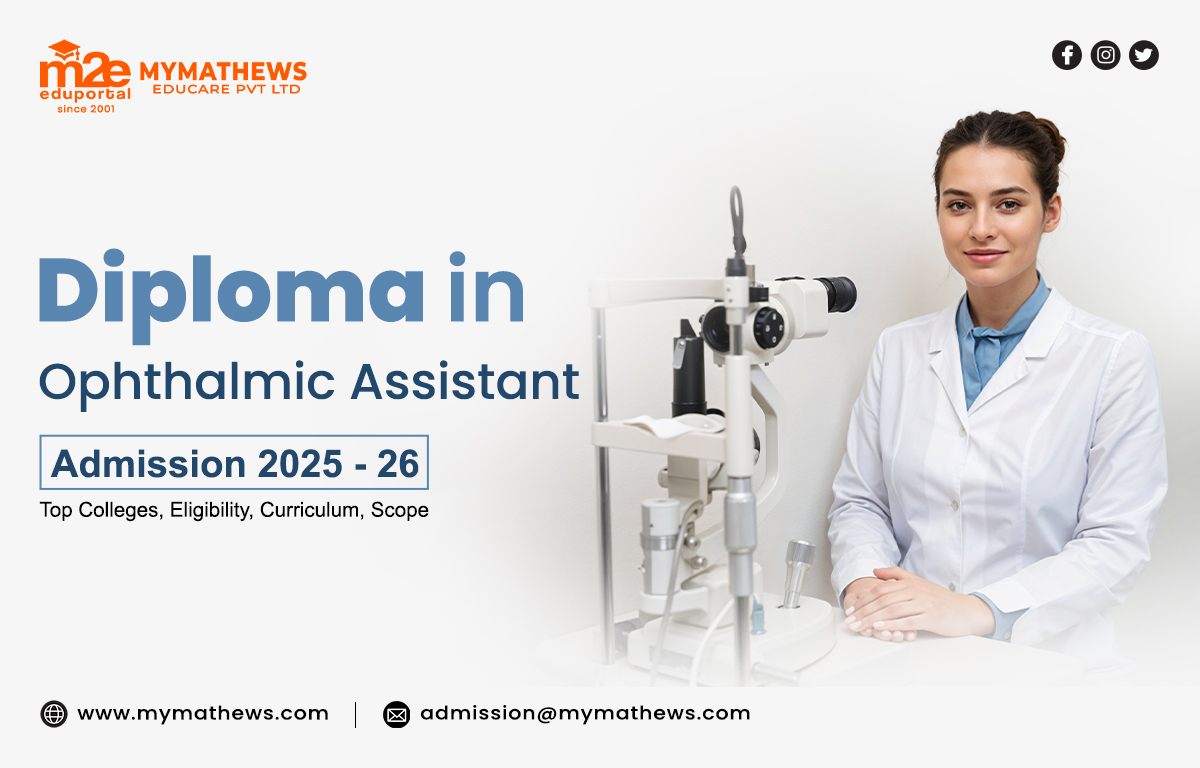List of Allied Health Science College
Discussion Forum
Start your discussion
Type your message
Recent Discussions
-
Dec. 2, 2023, 3:27 a.m.Allied health colleges near to perundurai
-
Dec. 2, 2023, 3:26 a.m.Allied health science college
FAQ
What is BSc Cardio Pulmonary Perfusion Care Technology?
The course deals with the functions of heart or lungs during surgical procedures. At the time of cardiac surgery, the pulmonary perfusion care technologist support or assume the function of the heart or lungs.
What is the salary of BSc Medical Imaging technology candidates?
The average starting salary of BSc Medical Imaging Technology is about INR 3 lakhs to 10 lakhs
What is BSc Optometry?
BSc Optometry is an undergraduate full-time course that involves the study of subjects such as ocular physiology, general physiology, hospital procedures, low vision aids, geometrical optics, nutrition and so on.
What is the duty of a Medical Laboratory Technician?
BSc MLT is a job-oriented course that makes the candidates skilled professionals in the area. The medical laboratory technician is responsible for receiving, labeling, and analyzing samples. They are also responsible for performing laboratory tests in chemistry, toxicology, hematology, immunology, and microbiology laboratories.
What is B.Sc Perfusion Technology?
B.Sc Perfusion Technology is a 3-year undergraduate course which with the describes of pathology and physiology of lungs and allied respiratory organs.
What is BSc Physician Assistant course?
The program teaches the skills and knowledge required to provide support to the senior doctors and physicians. The course trains the students in treating patients, interpreting laboratory x-rays and perform diagnoses.
What is the career options of BSc Renal Dialysis?
The career opportunities are very huge for BSc Renal Dialysis studies. Hospitals are recruiting graduates with eye-catching salaries. Research centers are also recruiting the graduates according to the abilities and skills possessed by the candidate. The candidates could work in both the public and private sectors. The scope is huge for the candidates who are willing to work abroad. Some of the career areas related to the study are teachers, medical technicians, lecturers, clinical coordinators, dialysis technician, and so on. Other than that the student could opt for higher studies in MSc Renal Replacement Therapy and Dialysis Technology, MSc (Medicine)Dialysis, MSc Dialysis Technician.
What is the eligibility of B.Sc Respiratory Therapy?
The basic requirement is a 10+2 from a recognized board. The students should have studied physics, chemistry and biology as main subjects during 10+2 level. The students should have a minimum percentage of marks for the qualifying examination.
Which are the top recruiting companies for BSc Imaging Technology?
South Eastern Coal Fields Limited (SECL), HLL Life Care Limited, Steel Authority of India (SAiL), Employee State Insurance Corporation and so on are some of the popular public sector companies seeking BSc Medical Imaging Technology.
What are the career profiles related to BSc Medical Imaging Technology?
The career profiles related to BSc Medical Imaging Technology are Radiographer, Computer tomography technologist, Mammographer, Nuclear Medicine Technologist, Magnetic Resonance Imaging Technologist, instructor, teacher and so on
What is BSc Cardio Pulmonary Perfusion Care Technology?
The course deals with the functions of heart or lungs during surgical procedures. At the time of cardiac surgery, the pulmonary perfusion care technologist support or assume the function of the heart or lungs.
What is the job profile of a cardiovascular technologist?
The science is an allied course in medicine with a duration of three years. A cardiovascular technologist is responsible for assisting physicians during invasive cardiovascular testing. A cardiovascular test is done by inserting a tube into one of the blood vessels that carry blood into the heart
What is the eligibility to study BSc Optometry?
The student should have passed higher secondary examination from a recognized board in science stream
What is the duty of a Medical Laboratory Technician?
BSc MLT is a job-oriented course that makes the candidates skilled professionals in the area. The medical laboratory technician is responsible for receiving, labeling, and analyzing samples. They are also responsible for performing laboratory tests in chemistry, toxicology, hematology, immunology, and microbiology laboratories.
What is B.Sc Perfusion Technology?
B.Sc Perfusion Technology is a 3-year undergraduate course which with the describes of pathology and physiology of lungs and allied respiratory organs
What is BSc Physician Assistant course?
The program teaches the skills and knowledge required to provide support to the senior doctors and physicians. The course trains the students in treating patients, interpreting laboratory x-rays and perform diagnoses.
What is the career options of BSc Renal Dialysis?
The career opportunities are very huge for BSc Renal Dialysis studies. Hospitals are recruiting graduates with eye-catching salaries. Research centers are also recruiting the graduates according to the abilities and skills possessed by the candidate. The candidates could work in both the public and private sectors. The scope is huge for the candidates who are willing to work abroad. Some of the career areas related to the study are teachers, medical technicians, lecturers, clinical coordinators, dialysis technician, and so on. Other than that the student could opt for higher studies in MSc Renal Replacement Therapy and Dialysis Technology, MSc (Medicine)Dialysis, MSc Dialysis Technician.
What is the eligibility of B.Sc Respiratory Therapy?
The basic requirement is a 10+2 from a recognized board. The students should have studied physics, chemistry and biology as main subjects during 10+2 level. The students should have a minimum percentage of marks for the qualifying examination.
What is the work to be performed by a radiographer or those who have passed BSc Medical Imaging Technology?
The professionals perform procedures such assonographies, ultrasound tests, and so on.
What is the duration of the course B.Sc Cardio Pulmonary Perfusion Care Technology?
The course Cardio Pulmonary Perfusion care is three years.
What is the duration of Bachelor of Cardiovascular Technology?
Bachelor of Cardiovascular technology is a three-year duration course that deals with the technology that helps physicians during and invasive cardiovascular testing.
There is an entrance examination or direct method to get admission to BSc Optometry?
There are two methods to get admission to BSc Optometry course. One is a direct method purely based on the scores of the qualifying examination. The other mode of admission is based on entrance examination
What is the duty of a Medical Laboratory Technician?
BSc MLT is a job-oriented course that makes the candidates skilled professionals in the area. The medical laboratory technician is responsible for receiving, labeling, and analyzing samples. They are also responsible for performing laboratory tests in chemistry, toxicology, hematology, immunology, and microbiology laboratories.
What are the advanced courses after BSc Medical Imaging Technology?
The advanced courses related to BSc Medical Imaging are MSc in Medical Imaging Technology, Master in Imaging Technology, Post Graduate Diploma in Medical Imaging Technology and so on. After MSc, one could pursue Ph.D. or M.Phil. in the subject. So that they could become scientists, or can assume the position of Lecturer in public as well as private sector companies.
What is the eligibility for joining B.Sc Cardio Pulmonary Perfusion Care Technology?
The students should have possess a higher secondary qualification from a recognized board. The subject of study at plus two level should be physics, chemistry and biology. The students should have acquired a minimum score as prescribed by the university in order to apply for the course. Government allowed relaxation for reservation classes are allowed.
What is the eligibility for admission to Cardiovascular Technology?
The students should have higher secondary education from a recognized board. The students must have also studied physics, chemistry, and biology at the plus two levels. There is a minimum prescribed mark for getting admission to the course. The reservation as per government rules is allowed.
What is the course fee for BSc Optometry course?
The course fee is not the same for all the colleges even if the course is same. The average course fee for the course is INR 10000 to 1 lakh.
What are the eligibility criteria for those who want to study BSc Medical Laboratory Technology?
The candidates who have passes 10+2 from a recognized board with science as the subject of study are eligible for the entrance test.
What is the eligibility for joining the course B.Sc Physician Assistant?
The eligibility for joining the course is a 10+2 from a recognized board. At the same time, the students should have to study physics, chemistry, and biology at the plus two level. Some universities ask for a minimum percentage of the score for applying for B.Sc Physician Assistant course.
Which are the career profiles related to B.Sc Cardio Pulmonary Perfusion Care Professionals?
The Cardio Pulmonary Perfusion Care Professionals could work as pediatric perfusionist, perfusion technologist, medical coder, cardiac perfusionist, risk manager, lecturer, teacher, cardiac technician and so on.
What are the duties of a Cardiovascular technician?
The technician test patients for health problems, take care of people with cardiovascular disease, supports in the maintenance and usage of medical equipment related to the process, able to apply life support skills, possess knowledge about emergency invasive procedures in order to save the life of a patient, inserts catheters and pacemakers, acquires strong knowledge in cardiac-related procedures, observes the correct procedure to perform cardiac procedures before practical application.
Which are the career areas for BSc Optometry graduates?
The various career areas related to the course are sports vision, public health community, sports vision, vision therapy clinics, diagnostics, contact lens practice, low vison clinics, NGOs and blind schools.
What are the career areas related to BSc Medical Laboratory Technology?
There are a lot of career opportunities for candidates who have completed BSc Medical Laboratory Technology. The students after completing BSc Medical Laboratory Technology could work as clinical laboratory technologists, phlebotomists, medical laboratory technicians, clinical laboratory technicians, biochemists, lab technologists, medical phlebotomists, and so on.
What is the eligibility criteria for joining to a B.Sc Perfusion Technology course?
The student should have to pass 10+2 or equivalent certificate from a recognized board. The student must have scored 50 to 55% marks in the qualifying examination.
How long is the duration of the course, B.Sc Neuroscience Technology?
B.Sc Neuroscience Technology is a three-year-long course in the field of healthcare.
What is the eligibility for the admission to B.Sc Audiology and speech language pathology?
The student should have passed 10+2 from a recognized board. The main subjects of study include physics, chemistry and biology.
What is BSc Clinical Psychology?
BSc Clinical Psychology focuses on the human mind and behavior. The study involves assessment, diagnosis, treatment options, and prevention of mental issues and diseases. They don't prescribe medications to treat mental illness. Instead, they use psychological techniques, such as cognitive-behavioral therapy (CBT) and psychoanalytic therapy.
What is BSc Critical Care Technology?
BSc Critical Care Technology produces technologically skilled health care workers who set up and connect the necessary critical care equipment like ECG, Echocardiography, TMT, Intra Aortic Balloon Pump (IABP) to the patient to save his life. They ensure the proper functioning of the life-saving equipment, repair them if needed, record data, educate other paramedics in the appropriate use of the equipment, and provide feedback to the concerned doctor.
Which are the main subjects of study in B.Sc Medical Records Science?
The program has subjects such as computer application, basic human science, communication skills, medical terminology, medical record science, introduction to hospital management, basics of medicine, and general and hospital statistics.
What is the duration of the course BSc Perfusion Technology?
The duration of the course B.Sc Perfusion Technology is three years.
What is the eligibility for pursuing admission to M.Sc in Clinical Psychology?
Those who have completed B.Sc Clinical Psychology or equivalent is eligible to pursue M.Sc Clinical Psychology. There is a minimum percentage of marks for applying for the course, M.Sc Clinical Psychology. Mark relaxation is allowed for reservation categories.
Which are the main subjects taught in M.Sc Perfusion Technology?
The main subjects coming under M.Sc Perfusion Technology are physiology, anatomy, biochemistry, perfusion technology equipment, perfusion technology (clinical, applied and advanced), perfusion technology medicine, cardiac care, and so on.
Which are the main subjects of study in B.Sc Neuroscience Technology?
The main subjects coming under B.Sc Neuroscience Technology is healthcare science, physiological sciences, professional practices, clinical neurophysiology, applied clinical neurophysiology, and so on.
What is the difference between a clinical psychologist and a psychologist?
Clinical psychologists are trained in various techniques that enable them to work in schools, hospitals, clinics, counseling centers, and community centers. They provide psychotherapy and clinical psychological testing .General psychologists focus on mentally healthier people, while clinical psychologists focus on patients with severe mental health disorders and diseases.
What are the eligibility criteria for BSc Critical Care Technology?
The candidate must have completed Plus Two or equivalent from a recognized board or university with a minimum 50% mark in each subject separately. The candidate must have studied Physics, Chemistry, and Biology in Plus two.
What is the eligibility for pursuing B.Sc Medical Record Science?
The candidates should have passed 10+2 from a recognized board. The students who have studied science as main subjects during their 10+2 level are preferred. The candidates should have passed 10+2 in the prescribed score required by the institution. Mark relaxation for the reservation categories is allowed.
What is B.Sc Perfusion Technology?
B.Sc Perfusion Technology is a three-year undergraduate course which deals with the study of pathology and physiology of lungs and allied respiratory organs.
Which are the main subjects taught in M.Sc Clinical Psychology?
M.Sc statistics in behavioral science, cognitive psychology, research methods in psychology, neuropsychology, dynamics, and interpersonal behavioral theory, psychology of social behavior theory, self and positive theory, applications of psychology, personality theory and so on are the various subjects taught in M.Sc Clinical Psychology.
How long is the duration of the course, M.Sc Perfusion Technology?
M.Sc Perfusion Technology is a post-graduation course that is a two-year-long course in the field of healthcare and medicine.
What is the eligibility for pursuing B.Sc Neuroscience Technology?
The candidates should have passed higher secondary from a recognized board. The students who have studied science subjects such as physics, chemistry, and biology as main subjects during their 10+2 level are preferred. The candidates should have passed higher secondary in the prescribed score required by the institution. Mark relaxation for the reservation categories is followed in every institution.
What are the higher study options related to B.Sc Audiology and Speech Language Pathology?
The students after completing the graduation on Audiology and Speech Language Pathology could pursue higher studies in M.Sc Audiology and Speech Language Pathology. The student could be able to do post graduate diploma in audiology and speech language pathology.
What is the similarity between a clinical psychologist and a psychologist?
Clinical psychologists and general psychologists work with people having behavioral and mental health disorders.They both assess, diagnose and counsel patients and their family members.
Which are the career areas related to the field of medical records science?
The students after completing the course could work in healthcare centers, diagnostic centers and services, pathology laboratories, academic institutes, research and development centers, simulation centers, IT in Medical Technology, universities, colleges, entrepreneurship, NGOs, private hospitals, government hospitals, nursing homes, community health centers, rural health centers, and so on.
What is the duty of BSc Perfusion Technologist?
B.Sc Perfusion Technologists operate and prepare heart-lung machines and other related sophisticated equipments as directed by the physician.
How long is the duration of the course, M.Sc Clinical Psychology?
The duration of the course, M.Sc Clinical Psychology is two years.
Which are the career areas related to the field of B.Sc Neuroscience Technology?
The various career areas related to the area are hospitals, clinics, NGOs, universities, colleges, and so on.
What are the career opportunities after BSc Critical Care Technology?
After BSc Critical Care Technology, the career opportunities are Critical Care Technician, Cardiac Technician, Dialysis Technician, Operation theatre technician, Ambulance technician, ICU technician, Accident & Emergency care technician.
Which are the career areas related to B.Sc Audiology and Speech Language Pathology?
The career areas related to B.Sc Audiology and Speech Language Pathology are government agencies, healthcare institutions, government health departments, nursing care facilities, rehabilitation centers and so on.
What are the differences between a Clinical Psychologist, Psychiatrist, Clinical Social Worker, Mental Health Counselor?
The Clinical Psychologist, Psychiatrist, Social Worker, Mental Health Counselor differ in terms of their educational qualification, specialties, years or level of education, training, and experience. They sometimes work together or refer the patient to another professional if it is outside their scope of practice. A Clinical Psychologist is a Doctor in the sense that he holds a Doctorate in Psychology (Psy. D.) or a Doctor of Philosophy in Psychology (Ph. D.). They provide psychotherapy and clinical psychological testing.A psychiatrist is a medical doctor (MD) specialized in psychiatry and authorized to prescribe medications for mental health patients. Clinical Social Worker is not a doctor but holds a master's degree. They assess, diagnose, intervene and treat patients, families, and groups with psychosocial issues. Mental Health Counselor is also not a doctor but holds a master's degree in counseling. They provide counseling to individuals, families, and groups.
Where can Critical Care Technologists find jobs?
The students are placed in the critical care unit, cardiac unit, accident & emergency unit, dialysis unit, operation theatre unit, and ambulance.
What are the various career roles related to the field of medical records science?
The students after completing the course could work as medical record technicians, front desk receptionists, billing professionals, accountant, teacher, lecturer, and many more.
What is the eligibility criteria for joining to a B.Sc Perfusion Technology course?
The student should have to pass 10+2 or equivalent certificate from a recognized board. The student must have scored 50 to 55% marks in the qualifying examination.
What are the various career roles related to the field of M.Sc Clinical Psychology?
The career roles related to the sector M.Sc Clinical Psychology is teacher, instructor, psychologist, educational psychologist, urban planning officer, social psychologist, staff recruiter and so on.
What are the various career roles related to the field of B.Sc Neuroscience Technology?
The graduates are hired as teachers, scientists, research analysts, scientific assistants, lecturers, chemists, technical writers, technical editors, enumerators, researchers, biostatisticians, consultants, clinical research managers, and so on.
What are the higher study options related to B.Sc Audiology and Speech Language Pathology?
The students after completing the graduation on Audiology and Speech Language Pathology could pursue higher studies in M.Sc Audiology and Speech Language Pathology. The student could be able to do post graduate diploma in audiology and speech language pathology.
What are the qualifications need to become a clinical psychologist?
To become a clinical psychologist, the student needs a three-year doctorate in Clinical Psychology and should be registered with the respective council. In some places, a master's is also acceptable.
What can I study after BSc critical care technology?
After finishing BSc Critical care technology, the students can opt for higher studies in MSC Critical care technology, M.Sc in Intensive care technology, MSc Public Health, MPH (Master of Public Health), Master of Hospital Administration, MBA.
What is the eligibility criteria for joining to a B.Sc Perfusion Technology course?
The student should have to pass 10+2 or equivalent certificate from a recognized board. The student must have scored 50 to 55% marks in the qualifying examination.
What are the various career roles related to the field of M.Sc Perfusion Technology?
The graduates are hired as research analysts, scientists, lecturers, chemists, teachers, scientific assistants, enumerators, technical writers, technical editors, clinical research managers, researchers, consultants, and so on.
What is the future study option related to the course B.Sc Neuroscience Technology?
M.Sc in Neuroscience is the advanced course after completing graduation in Neuroscience technology. For those who have a flair for teaching could do research activities soon after their post-graduation.
What is the eligibility for studying BSc Medical Imaging Technology?
Students with 10+2 in science stream from a recognized board is eligible for studying BSc Medical Imaging Technology.
What is the course fee for studying Bachelor of Cardiovascular technology?
The course fee is different in different colleges. The course fee in government colleges will be less compared to others. However, there is no uniformity in the course fee. The average annual fee for the course is in the range of INR 1,000 and 4 lakhs depending upon the institute.
Which are the career areas for BSc Optometry graduates?
The various career areas related to the course are sports vision, public health community, sports vision, vision therapy clinics, diagnostics, contact lens practice, low vison clinics, NGOs and blind schools.
What are the course fees for BSc Medical Laboratory Technology?
The course fee is different for different colleges. The average course fee ranges from INR 10,000 to 4 lakhs per annum.
What is the course fees for study B.Sc Physician Assistant?
The average annual course fees for enrolling the course, B.Sc Physician Assistant is INR 1,00,000 to 4,00,000. The course fee may be less for those government institutions.
What are the job profiles related to BSc Renal Dialysis?
The job profiles related to the students with BSc Renal Dialysis are Medical Technician, Clinical Coordinator, Dialysis Technician, Lecturer, and so on. Many private and public sector firms are in need of BSc Renal Dialysis students. Some of the career roles related to BSc Renal Dialysis are MSc Renal Replacement Therapy and Dialysis Technology, MSc (Medicine)Dialysis, MSc Dialysis Technician.
Why is the course B.Sc Neuroscience Technology important?
The study of the brain in humans and other animals is involved in the study. This includes neural mechanisms at cellular, molecular, and system levels. The techniques include neuroanatomy, single-cell electrophysiology, neuroendocrine assays, brain imaging, and neurochemical, and so on. A lot of graduates are very much is needed in research fields.
OUR BLOGS
Computer Science (Digital Transformation | AI-ML) Program at Atria University
Read more... March 28, 2025
Discover the Future of Transportation with E-Mobility
At ATRIA Universit
Read more... March 26, 2025
Diploma in Ophthalmic Assistant Course: Top Colleges, Eligibility, Curriculum, Scope and Admissions 2025-2026
The Diploma in Oph
Read more... March 24, 2025















